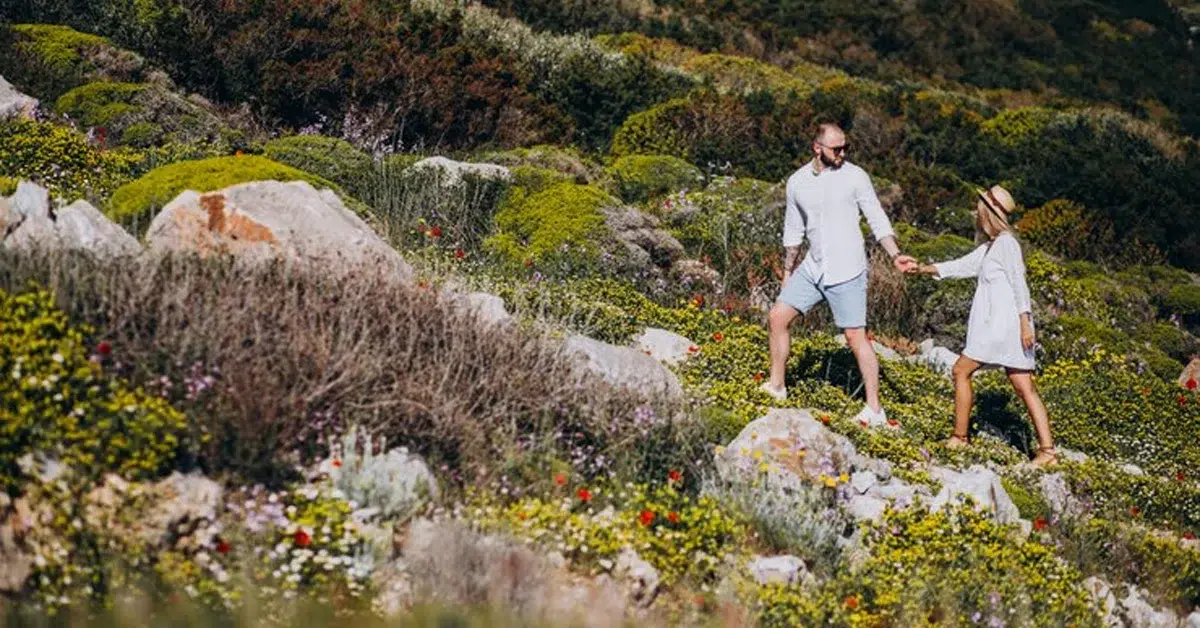Mallorca, the largest of Spain’s Balearic Islands, has long been a popular destination for travelers seeking sun, sea, and a rich cultural heritage. However, as the global tourism industry continues to grow, the environmental and social impacts of mass tourism have become increasingly evident. In response, the concept of Mallorca regenerative tourism has emerged as a solution to address these challenges, offering a more sustainable and responsible approach to travel.
In this article, we will explore the concept of regenerative tourism in Mallorca, its significance, and how it provides a pathway to sustainable travel. We’ll also highlight the ways in which this model is helping preserve the island’s unique natural and cultural heritage while benefiting local communities.
ALSO READ: Discover Hanchi Bowles Expertise Insights And Achievements
What Is Mallorca Regenerative Tourism?
Regenerative tourism goes beyond sustainability by focusing not only on reducing harm but also on actively improving the environment and society. While sustainability aims to minimize negative impacts, regenerative tourism seeks to leave a positive, lasting legacy. This can include restoring ecosystems, enhancing local cultures, and promoting social well-being.
In the context of Mallorca, regenerative tourism aims to restore the island’s fragile ecosystems, preserve its cultural heritage, and ensure that the benefits of tourism are felt by local communities. By adopting regenerative practices, travelers, businesses, and local authorities work together to create a travel experience that not only protects but also enriches the island’s resources for future generations.
Why Is Mallorca Embracing Regenerative Tourism?
As a popular tourist destination, Mallorca has faced significant environmental challenges. Overcrowding, habitat destruction, and pollution have all taken a toll on the island’s natural beauty. The influx of tourists during the peak summer months has strained local resources and services, while unsustainable agricultural practices and urban sprawl have contributed to the degradation of its landscapes.
Mallorca is increasingly turning to regenerative tourism to address these issues by:
Reviving Ecosystems
One of the main goals of regenerative tourism is to restore damaged ecosystems. Mallorca is home to diverse natural environments, from the rugged Serra de Tramuntana mountains to its pristine beaches and forests. Regenerative tourism projects focus on rehabilitating these areas by promoting reforestation, marine conservation, and sustainable farming practices.
Promoting Sustainable Agriculture
Mallorca’s agricultural industry is a key element of its cultural identity. Regenerative tourism supports local farmers by encouraging the use of regenerative farming techniques, which prioritize soil health, biodiversity, and water conservation. These practices help ensure that farming is both productive and environmentally friendly, allowing future generations to continue growing local produce like olives, almonds, and grapes.
Supporting Local Communities
Regenerative tourism encourages visitors to engage with local communities and support businesses that are committed to ethical and sustainable practices. This model helps to ensure that tourism dollars stay within the local economy, improving livelihoods and reducing reliance on mass tourism. Local guides, artisans, chefs, and hospitality workers can benefit from this type of tourism, which fosters deeper connections between tourists and residents.
How Regenerative Tourism Is Practiced In Mallorca
Regenerative tourism in Mallorca takes many forms, ranging from eco-friendly accommodations to community-driven initiatives. Here are some of the key practices contributing to the island’s regenerative tourism movement:
Eco-Friendly Accommodations
Many of Mallorca’s hotels, resorts, and rural accommodations are adopting sustainable practices. From solar power and water-saving technologies to organic linens and local food sourcing, eco-friendly accommodations are reducing their carbon footprint while providing guests with an authentic and environmentally conscious experience.
In addition, many properties are involved in restoration projects that focus on preserving traditional architecture and minimizing the impact on natural landscapes. Rural boutique hotels, eco-lodges, and farm stays are also becoming more popular, allowing visitors to connect with nature and learn about regenerative farming practices.
Educational Experiences
Tourists are encouraged to engage in activities that increase their awareness of Mallorca’s environmental and cultural challenges. Guided tours focusing on sustainable farming, wildlife conservation, and traditional craftsmanship are some examples of how regenerative tourism encourages visitors to learn about and actively participate in the island’s preservation efforts.
Some organizations also offer volunteering opportunities, allowing tourists to directly contribute to restoration projects, such as beach cleanups, forest restoration, and even the protection of local wildlife.
Cultural Preservation
Regenerative tourism promotes the preservation of Mallorca’s cultural heritage through the support of traditional crafts, local festivals, and indigenous knowledge. By integrating cultural experiences into the tourism offering, travelers can gain a deeper understanding of the island’s history and customs. These efforts help sustain the island’s unique identity and foster pride among its residents.
Benefits Of Regenerative Tourism For Mallorca
The benefits of regenerative tourism extend beyond environmental sustainability. Here’s how this model helps Mallorca in multiple ways:
Environmental Restoration
The core of regenerative tourism is about healing the land. By participating in or supporting regeneration projects, both locals and tourists help restore the island’s natural ecosystems. This can include the restoration of forested areas, the rewilding of native plant species, and the protection of the island’s marine life through sustainable fishing practices and beach cleanups.
Economic Resilience
As global tourism patterns shift, travelers are increasingly looking for destinations that offer authentic and meaningful experiences. Regenerative tourism encourages visitors to engage with local businesses and artisans, providing economic opportunities in communities that may have been overlooked by traditional mass tourism. This creates a more resilient economy, driven by sustainable practices and the diversification of tourism offerings.
Social Well-Being
Regenerative tourism fosters a sense of community by promoting direct relationships between visitors and residents. Travelers who engage with local farmers, chefs, artisans, and guides create a more equitable tourism system. Local communities benefit from the economic impact, and visitors gain a deeper connection to the destination.
Long-Term Viability
By emphasizing regeneration over exploitation, Mallorca is working towards a tourism model that can sustain itself in the long run. With growing concerns over the effects of climate change and environmental degradation, regenerative tourism offers a solution that ensures Mallorca remains a desirable destination for years to come.
How Travelers Can Support Regenerative Tourism In Mallorca
If you’re planning a trip to Mallorca and want to be a part of the regenerative tourism movement, here are some tips on how you can make a positive impact:
Choose Eco-Friendly Accommodations
Opt for accommodations that prioritize sustainability in their operations, such as hotels with eco-certifications or rural accommodations that practice regenerative farming. These options will allow you to enjoy your stay while minimizing your environmental footprint.
Support Local Businesses
Choose locally-owned restaurants, shops, and tour operators who practice sustainable and ethical business practices. Supporting local artisans, farmers, and small businesses helps keep money within the community and reduces the environmental costs associated with mass production and global supply chains.
Engage in Educational Activities
Participate in eco-tours, nature walks, or cultural workshops that promote understanding of the island’s natural and cultural heritage. Learn about the conservation efforts underway, and get involved by volunteering in community or environmental projects.
Respect Nature
When exploring Mallorca’s natural landscapes, be respectful of local wildlife and habitats. Avoid disturbing sensitive areas, stick to marked trails, and practice responsible waste disposal.
Challenges And The Future Of Regenerative Tourism In Mallorca
While regenerative tourism offers many promising benefits, there are challenges to its widespread adoption. Ensuring that local communities and businesses have the resources to implement sustainable practices, scaling up restoration efforts, and changing the mindset of travelers and operators alike are all hurdles that need to be overcome.
However, with increased awareness, education, and investment in sustainable tourism infrastructure, Mallorca has the potential to lead the way in regenerative tourism. The island’s commitment to environmental conservation, cultural preservation, and social well-being will determine its success in embracing this new tourism paradigm.
Conclusion
Mallorca Regenerative tourism represents a hopeful future for Mallorca, where travel not only sustains but also enriches the island’s environment and communities. By focusing on restoration, cultural preservation, and local empowerment, regenerative tourism offers a meaningful alternative to traditional mass tourism. Whether you’re a tourist, a local business owner, or a policymaker, embracing this model can help ensure that Mallorca remains a vibrant, thriving destination for future generations to enjoy.
ALSO READ: Hawthorn M Class HMS Mentor: History & Specifications
FAQs
What is Mallorca regenerative tourism?
Mallorca Regenerative tourism goes beyond sustainability by aiming to actively restore and improve the environment and local communities. It focuses on enhancing ecosystems, preserving cultural heritage, and creating positive impacts for both the environment and the people who live in the destination.
How is Mallorca promoting regenerative tourism?
Mallorca is promoting regenerative tourism by supporting eco-friendly accommodations, sustainable farming, community-based tourism, and restoration projects. This approach aims to preserve the island’s natural and cultural heritage while benefiting local communities.
How can travelers support regenerative tourism in Mallorca?
Travelers can support regenerative tourism by choosing eco-friendly accommodations, engaging with local businesses, participating in educational activities, and respecting the island’s natural environments.
What are the main benefits of regenerative tourism for Mallorca?
The main benefits of regenerative tourism for Mallorca include environmental restoration, economic resilience, social well-being, and long-term tourism viability. It helps protect the island’s ecosystems, supports local economies, and ensures sustainable tourism practices.
What are the challenges of regenerative tourism in Mallorca?
Challenges include the need for education and awareness, the scaling of sustainable practices, and overcoming the dominance of mass tourism. However, with ongoing investment and commitment, regenerative tourism can become a central part of Mallorca’s future tourism strategy.










